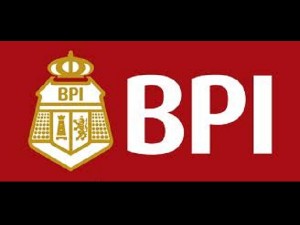Top bank goes after Filipinos living on interest
 MANILA, Philippines—No matter how low interest rates have fallen, many Filipinos still prefer to stay conservative and simply live on interest.
MANILA, Philippines—No matter how low interest rates have fallen, many Filipinos still prefer to stay conservative and simply live on interest.
Many elderly people, for instance, no longer want to chase yields, preferring to keep their money in readily available bank savings accounts. There are also yuppies who prefer to put their money in time deposits.
These are just some of the investment-savvy Filipinos that Ayala-led Bank of the Philippine Islands aims to attract with its new deposit product “BPI Advance,” which targets the upper-end retail market. For a minimum of P100,000, depositors can get interest earnings a day after they place their money with the bank.
BPI offers this as “build-up” product where interest rates are tiered depending on the amount of deposit.
The higher the deposit, the higher the interest rate. For large placements, the interest rate can even match that offered by time deposits.
“The difference is you can add anytime, withdraw anytime. There are no pre-termination penalties,” says Chinky Lukban, BPI vice president and head of deposit product management.
“What it really targets are those living on interest; those who just put their accounts in time deposits and renew every month,” Lukban says. “Its main objective is really to help people manage their cash flows and give them liquidity.”
“This one will automatically give you an interest rate on the deposit from the beginning of the month on a monthly basis. It’s really giving the market an option in terms of managing their liquidity,” she explains.
A P100,000 placement in “Advance,” for instance, will earn around 1.875 percent a year while an account of at least P1 million will earn 2.375 percent a year.
For easier monitoring, interest is credited to an affiliate account while principal is kept separately in another account.
For those suddenly in need to withdraw from this facility, withdrawal is free every first day of the month.
Withdrawals on days other than first banking day of the month are subject to interest adjustment and documentary stamp tax (DST) recovery.
This is seen as a very “niche” product that can attract those between 30 and 60 years old, whether they are retirees or entrepreneurs using their interest earnings to “churn” or for short-term trades in other financial instruments.
At age 60, for instance, Lukban says that these senior citizens would mostly want 80 to 90 percent of their wealth in easily accessible cash.
“You want to keep it in short term money because you’re living on interest at that point,” she says.
“Despite the low interest rates … there are still a lot of clients who live on those interests and rely on interest income to support them in old age.”
Even for younger people between 30 and 45, Lukban says most of them want to keep at least 30 percent of their wealth in cash while using the rest for stock market trading or investing in managed funds like mutual funds.
On the part of BPI, the thrust has been to grow its CASA, or current account-savings accounts, to manage intermediation costs.
Last year, BPI’s deposits dipped by about 5 percent to P681 billion, largely due to the decline in time deposit placements even as CASA grew by 15 percent, she says.
Part of this is due to that natural shift to other instruments, especially among younger and more investment-savvy people who are familiar with more sophisticated investments.
Despite the decline in deposits last year, BPI’s total intermediated funds reached P1.35 trillion, or a 12-percent increase, as assets under management went up by 38 percent.
CASA accounts for 60 percent of BPI’s total deposit base. Of total deposits, 70 percent comes from the retail market.
“We don’t limit ourselves in (taking) deposits but to our client out there, at the end of the day, our advocacy is for them to be financially free and have a diversified portfolio … You don’t put your eggs in one basket,” she says.
This year, BPI aims to sustain a 12-15 percent growth in its CASA and this is coming from an already large base.
Its strategy moving forward, Lukban says, is to keep interest rates competitive and offer deposit products “that will answer every customer’s needs.”














